
VAT on Transportation Services in UAE - 2026
In 2026, VAT on transportation services in the UAE remains a key focus for businesses, with local passenger transport generally exempt and international services often zero-rated. Stay compliant and optimize your VAT processes with expert guidance tailored for UAE’s dynamic transport sector!
Table of Contents
Related Articles


Sugar Tax Reform Will Crush Small UAE Drink Brands

The Impact of CARF on UAE Crypto Traders | Ready to Report FTA

Let's Talk
Sign Up For Free Consultation
VAT on Transportation in UAE
The UAE VAT law outlines the taxation framework for various transportation services, including VAT passenger transport and VAT on transportation of goods in UAE. According to article 46 of the VAT law, public transportation and the supply of local passenger transport within UAE are generally exempt from VAT. However, certain transport services, such as international transportation of goods or passengers, may qualify for zero-rated VAT, providing relief for businesses involved in cross-border transport. For instance, the means of transportation used within Dubai or any other emirate may be VAT applicable based on the specific transportation services being offered.
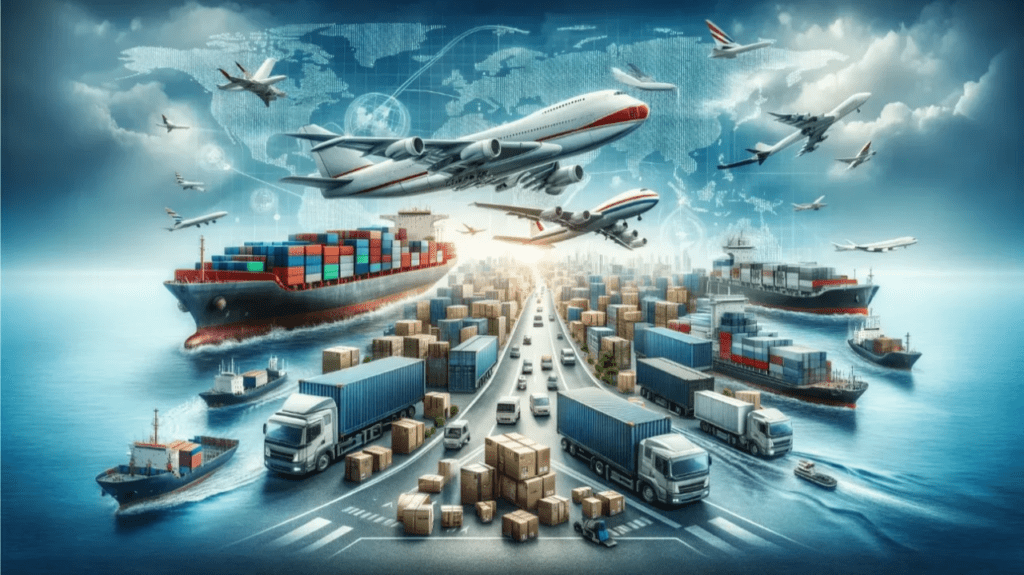
For businesses involved in both local transportation and international transport, it is essential to understand the VAT of different modes of transportation, including private transportation and delivery services. While local passenger transport services may be exempt from VAT in the UAE, the supply of goods and services associated to passenger transportation within the UAE, such as airport to hotel transfers or cargo transport, may be VAT applicable at the standard rate. Compliance with VAT registration UAE rules is mandatory for companies whose taxable supplies exceed the mandatory registration threshold.
The VAT implications for businesses operating in the transportation zone are significant, particularly for companies providing transportation both within the UAE and outside the UAE. Companies must file their VAT returns accurately and ensure proper treatment of goods and services. This includes addressing additional luggage charges, managing contracts between shipping companies, and complying with the necessary statutory regulations and Executive regulation requirements. Tulpar Global Taxation Services offers expert guidance on navigating these complexities, ensuring businesses meet all VAT obligations.
At Tulpar Global Taxation Services, our team of qualified tax agents and VAT consultants specializes in assisting businesses in the transportation zone. We provide comprehensive support for VAT registering, VAT return filing, and managing VAT liabilities for transport services. Whether you’re dealing with local transportation or foreign transportation services, our experts help ensure compliance with the UAE VAT rules and optimize your VAT processes to meet business needs effectively.
Key Concepts of VAT in Transportation

In the UAE, the VAT law plays a crucial role in regulating the transportation sector, including local transportation, international delivery services, and domestic courier services. As per article 45 of the VAT law, the supply of local transportation and public transportation in the emirate is typically exempt from VAT. However, certain transport services in a qualifying means of transport used for transportation within and outside UAE may still be VAT applicable, particularly for goods and services associated to transportation. The standard Dubai VAT rate of 5% applies to most goods and services, though some transportation services are zero rated for foreign transportation of goods.
For businesses providing cash on delivery services or the supply of bus or train services within the UAE, it is essential to understand that these services are provided under the general framework of VAT compliance. Tulpar Global Taxation Services assists companies in navigating the complexities of VAT return filing in the UAE for both local transportation services supply and foreign transportation of goods. By ensuring that VAT incurred on the costs of transportation and the supply of services are correctly accounted for, businesses can better manage their VAT obligations.
The application of VAT to the supply of local passenger transportation can raise various frequently asked questions on VAT regarding what shall be exempt from VAT and what is subject to VAT at 5%. As VAT is a consumption tax, businesses should remain compliant with article 45 and 46 of the VAT rules to avoid unnecessary penalties. Tulpar Global Taxation Services offers expert assistance in this regard, helping companies ensure that their VAT filings are accurate and compliant with UAE regulations.
VAT Framework in the UAE
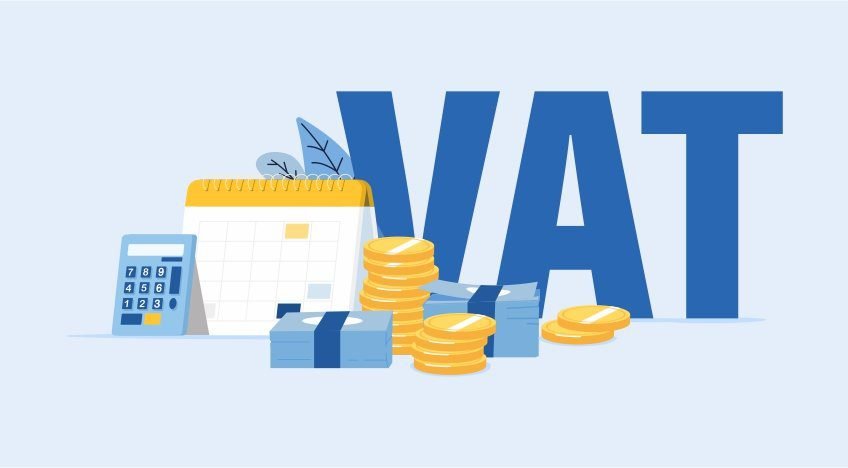
The UAE and Bahrain are two of the GCC countries that have implemented VAT on transport services, aiming to enhance transparency and financial stability while aligning with international VAT practices. The introduction of VAT reflects a broader initiative to diversify revenue sources and reduce reliance on oil revenues. For businesses operating in these countries, understanding the VAT rules is essential for ensuring compliance and effectively leveraging the benefits of the tax regime. This knowledge not only aids in fulfilling regulatory obligations but also allows businesses to make informed decisions regarding pricing, supply chains, and service offerings.
Businesses need to familiarize themselves with the specific VAT rates applicable to different transportation services, including passenger transport and freight services. Recognizing which services qualify for zero-rated VAT can significantly impact cash flow and overall business operations. Moreover, maintaining compliance with VAT regulations helps mitigate the risk of penalties and fosters trust with tax authorities. VAT continues to play a crucial role in the economic landscape of the UAE and Bahrain, businesses must prioritize understanding and adapting to these regulations to thrive in the competitive transportation zone while contributing to the region’s financial stability.
Understanding the VAT Law
VAT law in the UAE and Bahrain outlines that the transportation services supply, whether local or international, is VAT applicable at different rates. Transportation services can either be taxed at the standard rate or treated as zero-rated, depending on the type and nature of the service. For example, foreign transportation services, such as cross-border transportation, enjoy zero-rated VAT treatment, while local transportation services are generally taxed at the standard rate. Companies must carefully assess their transportation services supply to ensure the correct application of VAT.
Administration and Compliance
To remain compliant, businesses engaged in transportation services must ensure accurate VAT registration, calculate VAT liabilities appropriately, and submit VAT returns on time. For instance, companies in the public transportation sector or private transportation services need to maintain clear documentation to distinguish between taxable and zero-rated supplies, thus avoiding penalties. Working with a qualified Tax Agent like Tulpar Global Taxation ensures compliance with UAE’s VAT Registration requirements and other regulations.
VAT on Different Types of Transportation
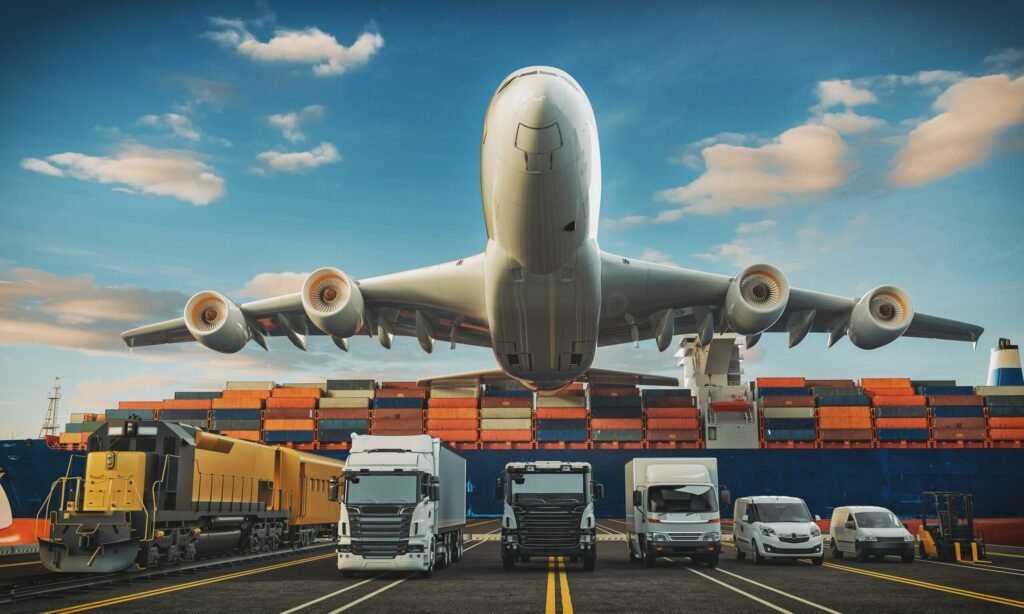
Different types of transportation services in the UAE have varied VAT. Understanding how VAT applies to passenger transport, freight services, and public vs. private transportation is crucial for businesses.
Passenger Transport
Transportation of Passengers services can range from school buses, shuttle buses to tourist attractions, or public transportation. In most cases, public transportation in the UAE is zero-rated, while private transport services are often taxable at the standard VAT rate. For example, services like passenger transport aboard motor vehicles or transport by land for commercial purposes may incur VAT debt, necessitating that businesses manage their VAT returns diligently.
Freight Services
Freight services, including cargo transportation and courier services, also fall under the transportation VAT framework. Whether a business is engaged in Domestic Courier Services or International Courier Services, the supply of freight services can be either taxed or exempt. Businesses operating in the cargo transportation sector need to know their VAT responsibilities to ensure compliance with VAT returns and avoid mistakes like misclassifying freight services as zero-rated when they are taxable.
Public vs. Private Transportation
Public transportation services, such as buses or other forms of mass transit, are typically treated as zero-rated, while private transport, such as rental vehicles or transportation for private purposes, may incur VAT. The distinction between public and private transport can influence a company’s VAT obligations, from the supply of services to VAT returns. This is why it’s critical to classify services accurately when filing VAT returns for transportation.
Zero-Rated Transport Supplies
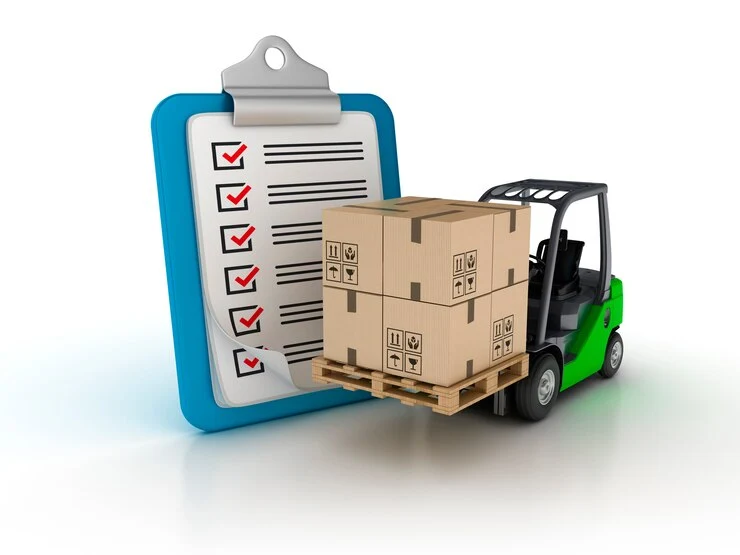
The VAT rules provides significant relief by allowing certain transportation services to be zero-rated, exempting them from VAT. Zero-rated services typically include international transportation of goods and passengers, as well as some transport-related supplies that meet specific criteria. This designation means that while these services are taxable, they are subject to a 0% VAT rate, allowing businesses to claim input VAT credits on related expenses such as fuel, maintenance, and logistics, without passing on VAT costs to their customers.
Businesses providing these services, particularly those involved in cross-border operations, can benefit from reduced financial obligations, enabling more competitive pricing and streamlined operations. To qualify for this zero-rated status, businesses must maintain thorough documentation, ensuring compliance with VAT regulations while enjoying the associated tax advantages.
What Qualifies as Zero-Rated
Zero-rated transport services in the UAE primarily encompass transportation and certain types of public transportation. Businesses involved in cross-border transportation, such as those providing the primary supply of passengers or goods, benefit from a 0% VAT rate, significantly reducing their tax burden. This allows companies to operate more efficiently and competitively, particularly in sectors where transportation is a core service.
However, to take advantage of this zero-rated VAT, businesses must ensure they meet all necessary documentation and compliance requirements, including maintaining accurate records that prove their eligibility for these benefits. Failure to comply could result in loss of tax relief and potential penalties.
Documentation Requirements for Zero-Rated Supplies
To qualify for zero-rated VAT on transportation services, businesses must maintain proper documentation, including proof of payment, VAT invoices, and transport contracts. These records are crucial to verify the nature of the services provided and to support the zero-rated status during VAT filings. Accurate bookkeeping ensures compliance with VAT regulations and facilitates smooth and precise VAT returns.
Any failure to maintain these essential documents can result in penalties, audits, or even the loss of zero-rated benefits, making it critical for businesses to uphold stringent documentation practices.
VAT on Shipping & Marine Services in Dubai, UAE – 2026 Updates
Navigating VAT on shipping and marine services in the UAE is crucial for businesses, especially with 2026 updates. Whether you’re in freight forwarding, marine transport, or passenger services, staying compliant with the latest regulations can save you from costly mistakes. Here’s everything you need to know.
Key 2026 VAT Changes for Shipping & Marine Services:
- Exemptions for Certain Marine Services: Some marine services are now VAT-exempt, but conditions apply.
- VAT on International Freight Forwarding: International shipping services have different VAT treatments, with potential tax-saving opportunities.
- VAT in Free Zones: Shipping companies in Free Zones may benefit from UAE VAT exemptions or reductions.
- Passenger Transport VAT Updates: New VAT rules for passenger marine transport could affect pricing and compliance.
Compliance Tips for Shipping Businesses:
- Review Contracts: Ensure your contracts reflect updated transport VAT rates and exemptions.
- Consult VAT Experts: Work with specialists like Tulpar Global Taxation for tailored guidance.
- Track International Transactions: Properly apply VAT on international shipments to avoid issues.
Tulpar Global Taxation offers expert VAT services, helping shipping companies stay compliant with the latest 2026 updates. Their professional advice ensures you avoid mistakes and optimize tax strategies. In 2026, VAT updates in the UAE offer both challenges and opportunities. Stay ahead with professional VAT guidance from Tulpar Global Taxation and maximize your shipping business’ profitability.
Contact Tulpar Global Taxation today for expert VAT consultation tailored to your business!
VAT Treatment of Goods and Services Related to Transportation
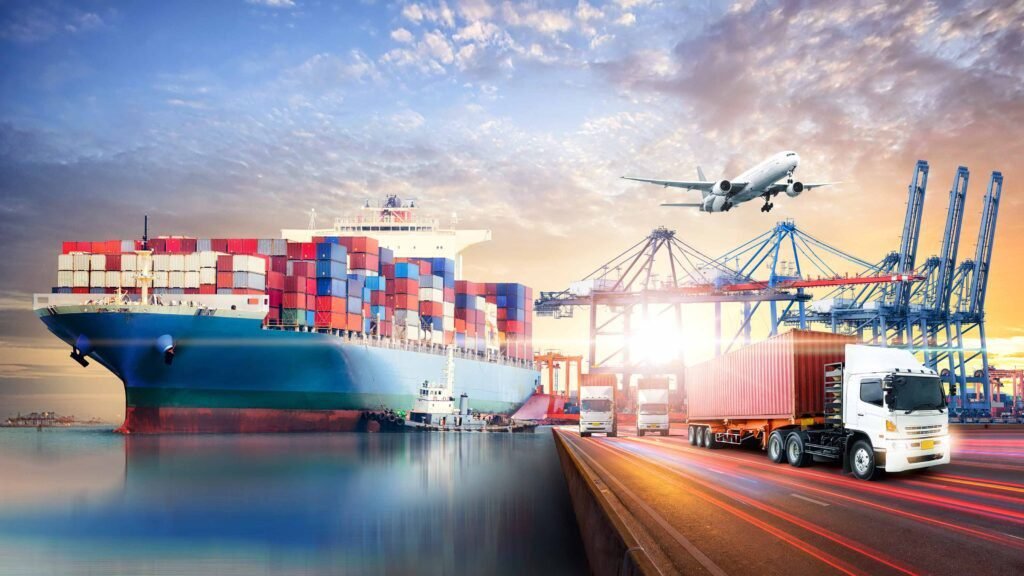
In addition to the supply of transportation services, VAT extends to various goods and services associated to the transportation sector. This includes essential services such as repair and maintenance of vehicles, fuel supplies, and logistics services, all of which are VAT applicable at the standard rate. Businesses providing these auxiliary services must ensure they correctly apply VAT to their offerings, as failure to comply could lead to tax discrepancies and potential fines. By understanding the VAT implications for both transportation services and related goods, businesses can manage their tax obligations more effectively while maintaining compliance with the VAT framework.
Repair and Maintenance Services
Repair and maintenance services for transportation vehicles, including buses, freight vehicles, and other transport-related machinery, are VAT applicable at the standard rate. Businesses involved in these services must accurately account for the VAT on these costs in their VAT return filings. Proper classification of these expenses is essential to ensure compliance with tax regulations, avoid discrepancies, and mitigate the risk of penalties.
By diligently managing the VAT implications for repair and maintenance services, businesses can maintain smooth operations while staying aligned with the VAT framework.
Fuel Supplies
The supply of fuel represents another critical service related to transportation that incurs VAT debt. This applies to fuel purchases for both public transportation and private vehicles, making it essential for businesses to correctly apply the appropriate VAT to these transactions. Maintaining accurate documentation, including invoices and receipts for fuel purchases, is vital for effective VAT return filings and ensuring compliance with tax regulations.
By adhering to these practices, businesses can manage their VAT obligations efficiently while minimizing the risk of tax-related issues. Understanding the VAT implications associated with fuel supplies is crucial for maintaining profitability and operational integrity in the transportation zone.
Logistics and Freight Handling Services
Logistics services, which encompass the handling of freight and associated courier agency services, are also VAT applicable. Businesses engaged in providing these essential services must thoroughly understand their VAT obligations to ensure compliance and avoid complications related to filing VAT return. Proper awareness of how VAT applies to logistics can help businesses accurately assess their tax liabilities, manage expenses effectively, and maintain transparent financial practices.
VAT Liabilities and Responsibilities
Understanding VAT liabilities is paramount for businesses operating in the transportation zone. Properly navigating the complexities of VAT regulations is essential, as missteps in VAT filings can lead to significant penalties and increased risks of non-compliance. Businesses must remain vigilant in managing their VAT obligations to ensure accurate reporting and timely submissions. This involves keeping detailed records, classifying services correctly, and being aware of the applicable VAT rates.
By prioritizing a thorough understanding of VAT liabilities, transportation companies can avoid costly errors and maintain their reputations while ensuring smooth operations within a heavily regulated environment.
Liability for Supply of Transportation
Businesses are liable for the supply of transportation services, whether categorized as a VAT taxable goods or an exempt supply. It is essential for these businesses to ensure accurate VAT registration and timely submission of VAT returns to avoid incurring penalties. Mistakes such as improper classification of transportation services or failing to distinguish between domestic and foreign transportation can lead to incorrect VAT filings, resulting in potential fines and compliance issues.
Therefore, maintaining a clear understanding of the VAT applicable to different types of transportation services is crucial. By implementing robust processes for VAT management, businesses can effectively navigate the complexities of the VAT system, ensuring compliance and minimizing financial risks associated with misreporting.
Common Mistakes to Avoid regarding VAT in Transportation Sector
Common errors that businesses make regarding VAT in the transportation zone can significantly impact their compliance and financial stability. Here are some key mistakes:
- Misinterpreting VAT: Many businesses struggle to correctly interpret how VAT applies to different types of transportation services, leading to incorrect tax assessments and filings.
- Failing to Distinguish Between Zero-Rated and Taxable Supplies: Confusion between zero-rated and taxable supplies can result in incorrect VAT, which ultimately affects cash flow and compliance.
- Missing VAT Return Deadlines: Timely submission of VAT returns is crucial; missing these deadlines can lead to penalties and interest charges, which can strain the financial health of the business.
- Inadequate Record-Keeping: Insufficient documentation related to transportation services complicates VAT return filings and increases the risk of errors during audits.
- Improper Classification of Services: Businesses may incorrectly classify their transportation services, resulting in misapplied VAT rates and non-compliance.
To mitigate these risks, businesses should consider collaborating with VAT experts like Tulpar Global Taxation. Such partnerships provide valuable benefits, including expert guidance on VAT, accurate Value added tax registration, timely VAT returns, comprehensive training on VAT regulations, and efficient record-keeping systems. By engaging with VAT professionals, businesses can navigate the complexities of VAT regulations effectively, minimize risks, and focus on their core operations with greater confidence.
Navigating VAT Regulations for Businesses
For businesses in the transportation zone, navigating VAT regulations can be complex and challenging. A comprehensive understanding of how VAT affects pricing, contracts, and compliance practices is key to ensuring smooth operations and financial stability.
- Impact on Pricing: VAT influences the overall pricing structure of transportation services. Businesses must determine whether to include VAT in their service fees or add it separately, which can affect competitiveness and customer perception. Understanding the applicable VAT rates—whether standard or zero-rated—is crucial for setting accurate prices that align with regulatory requirements while maintaining profitability.
- Influence on Contracts: VAT considerations must also be integrated into contracts with clients and suppliers. Clear clauses regarding VAT debt, whether the services are zero-rated or taxable, and how VAT will be treated in payment terms can prevent disputes and ensure both parties are aware of their obligations. Contracts should also outline the responsibilities for VAT compliance, such as who will handle VAT filing and registration.
- Compliance Practices: Adhering to VAT regulations requires businesses to establish robust compliance practices. This includes maintaining accurate records, filing timely VAT returns, and understanding the nuances of VAT rule as it pertains to different types of transportation services. Regular training for staff involved in financial and operational processes can enhance awareness and reduce the risk of errors in VAT handling.
By gaining a thorough understanding of these factors, businesses in the transportation zone can effectively navigate VAT regulations, ensuring compliance while optimizing their pricing strategies and contractual agreements.
Record-Keeping Requirements
Accurate record-keeping is essential for VAT compliance in the transportation zone. Businesses must diligently maintain invoices, receipts, and other pertinent documents to support their VAT return filings. This thorough documentation serves as proof of transactions and supports the correct application of VAT rates, whether for taxable or zero-rated supplies.
Poor record-keeping can lead to significant penalties, complications during tax audits, and potential disputes with tax authorities. Inadequate records can hinder a business’s ability to justify its VAT claims and could result in fines or additional tax liabilities. Therefore, establishing robust record-keeping practices is crucial. This includes organizing documents in a systematic manner, regularly reviewing records for accuracy, and ensuring all transactions are documented promptly. By prioritizing accurate record-keeping, businesses can safeguard themselves against compliance issues and maintain their financial integrity.
Resources for Further Learning on VAT in Transportation

For businesses seeking to deepen their understanding of VAT in the transportation zone, several valuable resources are available:
- Expert Consultation with Tulpar Global Taxation: Engaging with VAT professionals can provide tailored insights and guidance specific to the transportation industry, helping businesses navigate complex VAT regulations.
- Online VAT Guidelines from the UAE Government: The official government websites offer comprehensive guidelines and resources that outline VAT rules, regulations, and compliance requirements relevant to the transportation zone.
- Financial Publications Focused on Transportation and VAT: Various financial publications and industry reports provide in-depth analysis and updates on VAT trends, compliance tips, and best practices for businesses in the transportation field.
- Webinars and Workshops: Participating in webinars and workshops hosted by VAT experts can enhance knowledge through interactive learning and real-world case studies.
- Networking with Industry Peers: Connecting with other businesses in the transportation zone can provide practical insights and shared experiences regarding VAT compliance and management.
By leveraging these resources, businesses can enhance their understanding of VAT suggestions in transportation, ensuring compliance and optimizing their tax strategies.
Key Takeaways
Navigating VAT in the transportation zone requires a clear understanding of VAT law, compliance requirements, and effective record-keeping. Businesses must distinguish between taxable and zero-rated supplies to ensure they apply the correct VAT treatment. Accurate VAT filings are essential for avoiding penalties and maintaining compliance. Moreover, being aware of common mistakes, such as misclassifying services or failing to meet documentation requirements, is crucial for smooth operations.
To support businesses in this complex landscape, Tulpar Global Taxation offers comprehensive VAT services designed to facilitate compliance with VAT regulations. Their expert team provides tailored guidance on VAT, assists with VAT registering and return filing, and implements efficient record-keeping systems. By partnering with Tulpar Global Taxation, businesses can navigate VAT complexities with confidence, ensuring they meet all regulatory obligations while focusing on their core operations.
Yes — transportation services in the UAE are generally subject to 5% VAT. This applies when the service is supplied within the UAE and is considered a taxable supply. The provider must charge VAT on the invoice and report it in their VAT return.
Certain international transport services may qualify for zero-rating (0% VAT) when strict conditions are met. For example, international passenger transport and international freight transport can be zero-rated if supported by appropriate documentation (e.g., travel records, airway bills). It’s important to meet all legal requirements to apply zero-rating.
Transportation services include moving goods or passengers from one location to another. This covers land, sea, and air transport. The VAT treatment depends on whether the transport is within the UAE or qualifies as international under FTA rules.
Local passenger and goods transport services within the UAE are standard-rated at 5% VAT. The supplier must charge VAT and issue a compliant tax invoice for the fare or transport fee.
To apply zero-rating for international transport, you typically need valid supporting documents such as international travel tickets, customs export documents, bills of lading, airway bills, or contracts showing the international nature of the service.
When a UAE transport company supplies transport services outside the UAE, zero-rating may apply provided the conditions for international services are met. Documentation showing that the place of transport starts or ends outside the UAE is crucial.
Free Zone status does not automatically change VAT treatment for transport services. VAT depends on the location of the service supply and whether it qualifies as zero-rated. Services remain taxable unless the international conditions are satisfied.
Yes, transport companies can generally recover input VAT on business expenses (e.g., fuel, maintenance) used to make taxable or zero-rated supplies. Proper VAT invoices and records are required. Input VAT recovery may be restricted if the business also makes exempt supplies.
Common mistakes include misclassifying international transport as local, failing to obtain supporting documents for zero-rating, and incorrectly issuing tax invoices. These errors often trigger FTA audits and penalties.
Professional VAT consultants help classify transactions accurately, prepare documentation, and ensure compliance with FTA rules. Working with Tulpar Global Taxation helps transport businesses apply the correct VAT treatment, maintain records, and stay audit-ready.
